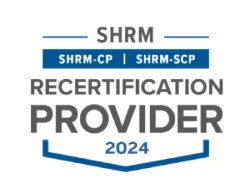President Biden Adopts the New Regulations Impacting Working Mothers

Congress recently passed, through the Consolidated Appropriations Act, 2023, the PUMP for Nursing Mothers Act (the Act) which makes several changes to the Break Time for Nursing Mothers law, enacted in 2010. Under the Break Time for Nursing Mothers law, employers nationwide were required to provide reasonable break time and a private, non-bathroom space for lactating employees to utilize during the workday. The goal of the PUMP Act is to expand these protections and close some of the gaps. Under the Act, employers are required, up to one year after the child’s birth, to provide a reasonable break for an employee to express breast milk each time the employee needs to do so. Specifically, the Act states the requirement for the breaks to be provided “each time,” and anticipates the frequency and duration will depend on factors related to the employee/child.
Employers subject to the requirements under the Fair Labor Standards Act (FLSA) must comply with the rules under the PUMP Act, regardless of the size of their business. It’s important to note that employers under 50 employees are not subject to the FLSA break time requirement if it can be demonstrated that compliance would create an undue hardship on the employer. To determine whether compliance rises to the level of undue hardship, employers will need to compare the difficulty or expense of compliance, to the size, nature, financial resources, or structure of the employer’s business. The regulations do not require employers to compensate an employee for any time spent during the workday for such purpose unless otherwise required under Federal, State, or local law; however, if the employee is not completely relieved from work duties during the entirety of the break, break time shall be considered hours worked. Note: special rules apply to certain rail carrier and motorcoach employees, and airline crew members are not protected under the Act.
Employees are protected from retaliation under the Act and have the ability to commence an action against the employer in the event they are not provided with the necessary protections. Prior to commencing an action against the employer for a violation, employees will need to (1) notify the employer of the failure to provide the employee with the private, non-bathroom space as described within the Act, and (2) provide the employer with 10 days after the notification to come into compliance. The Act outlines two exceptions to the aforementioned requirements:
- “The employee has been discharged because the employee –
- Has made a request for the break time or place described within the Act; or
- Has opposed any employer conduct related to this section; or
- The employer has indicated that the employer has no intention of providing the place described within the Act.”
Employers should be aware of the requirements under the Act and be prepared to comply if they are subject to the obligations. The Act was effective on the date of the CAA, 2023’s signature, but these expanded protections shall take effect on April 29, 2023.
The DOL has released FAQs, which can be found here. Additionally, the full language of the regulation can be found in the full text of the CAA, 2023.
Categories
Archive







